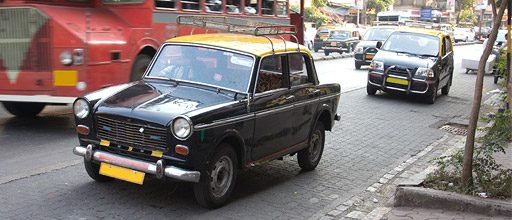
Enforce seat belt regulations to prevent avoidable road traffic deaths
The unfortunate and untimely death of the Union Rural Development Minister, Mr Gopinath Munde, in a road crash in the national Capital in the early hours of Tuesday morning has once again brought the issue of wearing seat belts into sharp focus. This simple step could not only have saved the Minister’s life but also prevent the deaths of thousands of people who die on city and high way roads in India each year.
The George Institute for Global Health,an international global health research institute has conducted several studies in low and middle income countries, including in India, that points to the need for taking proper steps in terms of both enforcement of seat belt rules as well as institutionalising pre-hospital care.
The World Health Organisation’s global status report 2013 on road safety points out that enforcement of seat belt laws is very weak in India and only 27 per cent of the drivers wear seat belts.
"Mr Munde’s death in a road crash is undoubtedly a tragedy; for the family and for the community. The 100,000 plus estimated road deaths that occur each year and even larger number of people left disabled in India go way beyond a tragedy," says Dr Vivekanand Jha, Executive Director of The George Institute for Global Health India. "Road deaths go way beyond the personal impact felt; the sorrow of losing a family member is one aspect, the economic aspect is another," he adds.
Studies done in several low and middle income countries show that road deaths disproportionately affect the poor. They plunge families into poverty: up to 40 per cent of families experience catastrophic health costs as a result. They impact on national productivity: most road deaths occur in men in the prime of their lives, at the time they are most economically productive. Road deaths restrict economic growth, drive up health care costs and condemn millions to life long disability.
The great tragedy is that this death, and most road deaths are predictable, and preventable. This death appears to be one that could have been prevented by use of a seatbelt (as was confirmed by Dr Harshvardhan, the Union Minister for Health and Family Welfare). "Seatbelts are highly effective in reducing death and serious injury in the event of a crash – studies have shown they reduce death by up to 60% in the event of a crash," says Professor Rebecca Ivers, Head of the Global Injury Division of The George Institute for Global Health.
Similarly, motorcycle helmets are highly effective in preventing road deaths, reducing the risk by up to 40% for those involved in a crash. "There are multiple other measures that reduce road deaths: laws on speed, seatbelt wearing, motorcycle helmet use, observation of traffic rules and drink driving, when appropriately enforced, and backed by community education and mass media campaigns, work very well to reduce road deaths," she adds.
There is countless evidence to show these interventions work and are cost-effective. Studies from Vietnam and China show that such measures can be implemented with effect in Asian settings. Even studies done in India including an injury surveillance programme in the city of Bengaluru implemented with support from WHO argues that small changes in the law and strict enforcement of the same can bring down the burden of traffic injuries.
According to the George Institute researchers, such measures must be accompanied by other changes: well-constructed roads that take safety into account, efficient licensing, registration and maintenance systems for motorised vehicles, separation of vulnerable road users from larger vehicles (footpaths for pedestrians for example), and alternate transport systems that take people out of private vehicles and onto mass transit systems.
"Investment in pre-hospital care, trauma care and rehabilitation services are also critical. Having timely access to effective trauma care in appropriately prepared hospitals significantly improves outcomes; affordable access to rehabilitation services enhances patient outcomes further," argues Rebecca.
What is required however is political will. "Strong leadership is required to pass the appropriate legislation and enforce it, and to support the critical mass communication campaigns needed to sustain the effectiveness of such measures. Leadership is needed to drive the necessary change in behaviour at a population level. Leadership is critical to investment in appropriate trauma care. We know what measures work – what we need is powerful policy action to drive implementation," says Dr Vivekanand Jha adding that Dr Harsh Vardhan’s statement dedicating himself to road safety in India is a step in the right direction.






